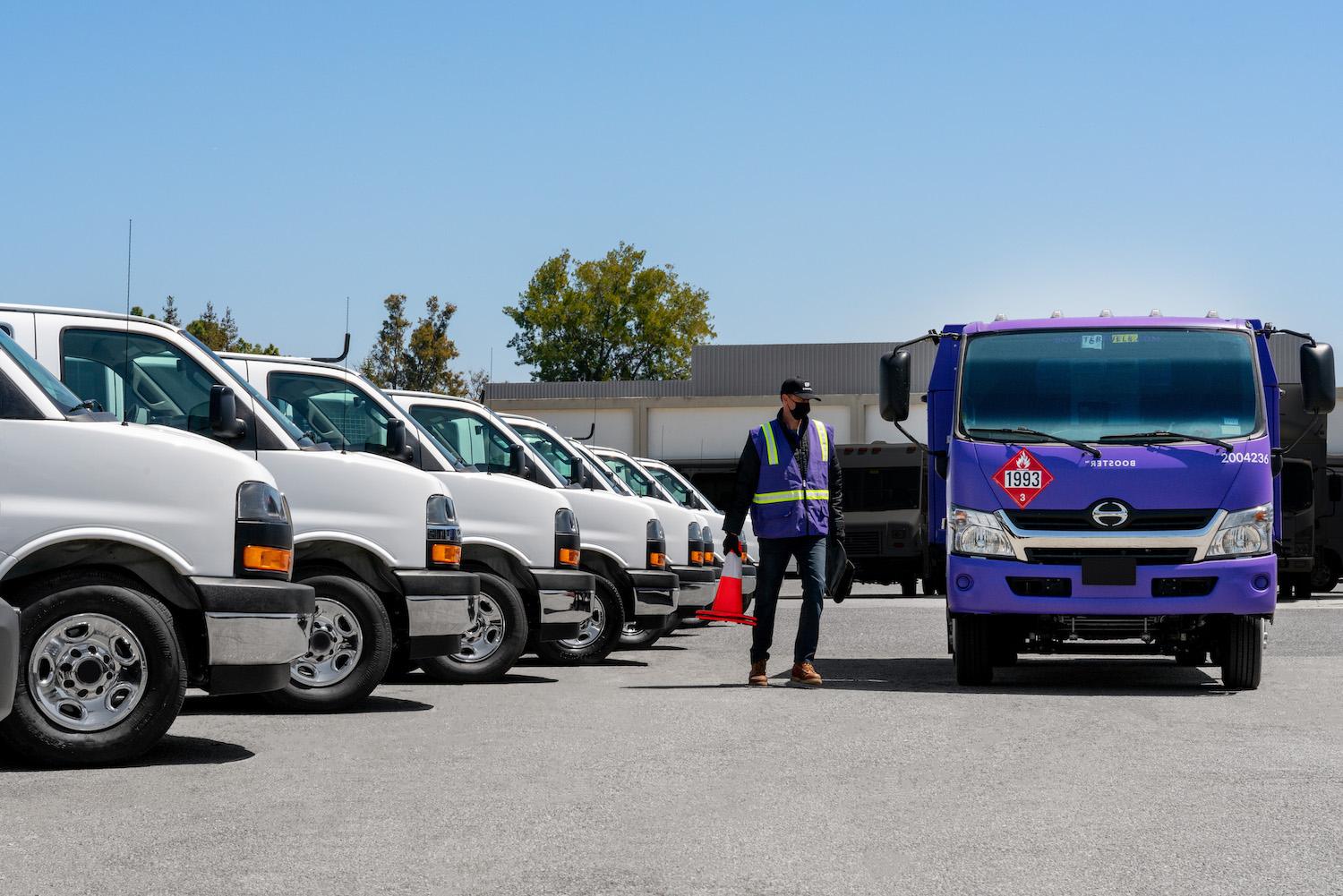The Future of Fueling: Sustainability, Mobility and Flexibility
America’s more than 100,000 gas stations are visited millions of times every day. Along with the impact of fossil fuel fill-ups, the miles vehicles travel to visit the nearest gas station can really add up. Further, the concentration of gas stations in low-income communities and communities of color poses an environmental justice concern, as these communities face higher concentrations of air pollution from all of those trips to the pump.
Mobile fueling offers an alternative by delivering fuel directly to vehicles, without the emissions or pollution associated with trips to traditional gas stations. A recent study by Johns Hopkins outlines the potential of mobile fueling to mitigate the negative and biased impacts of gas stations by eliminating unnecessary trips and reducing overall gas station use. In this series sponsored by Booster, we’ll take a closer look at the mobile fueling model, the impact it can have on businesses and communities, and its place in the clean energy transition through alternative fuels.



